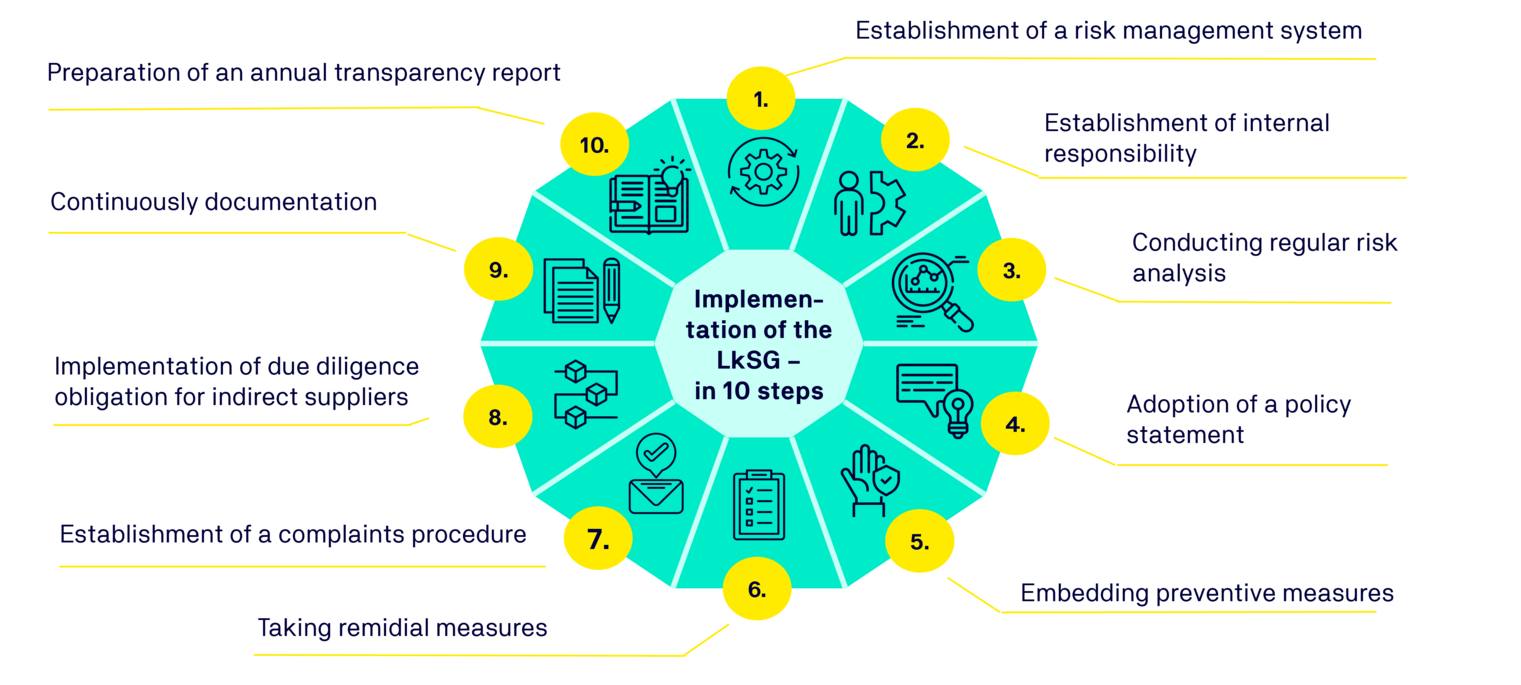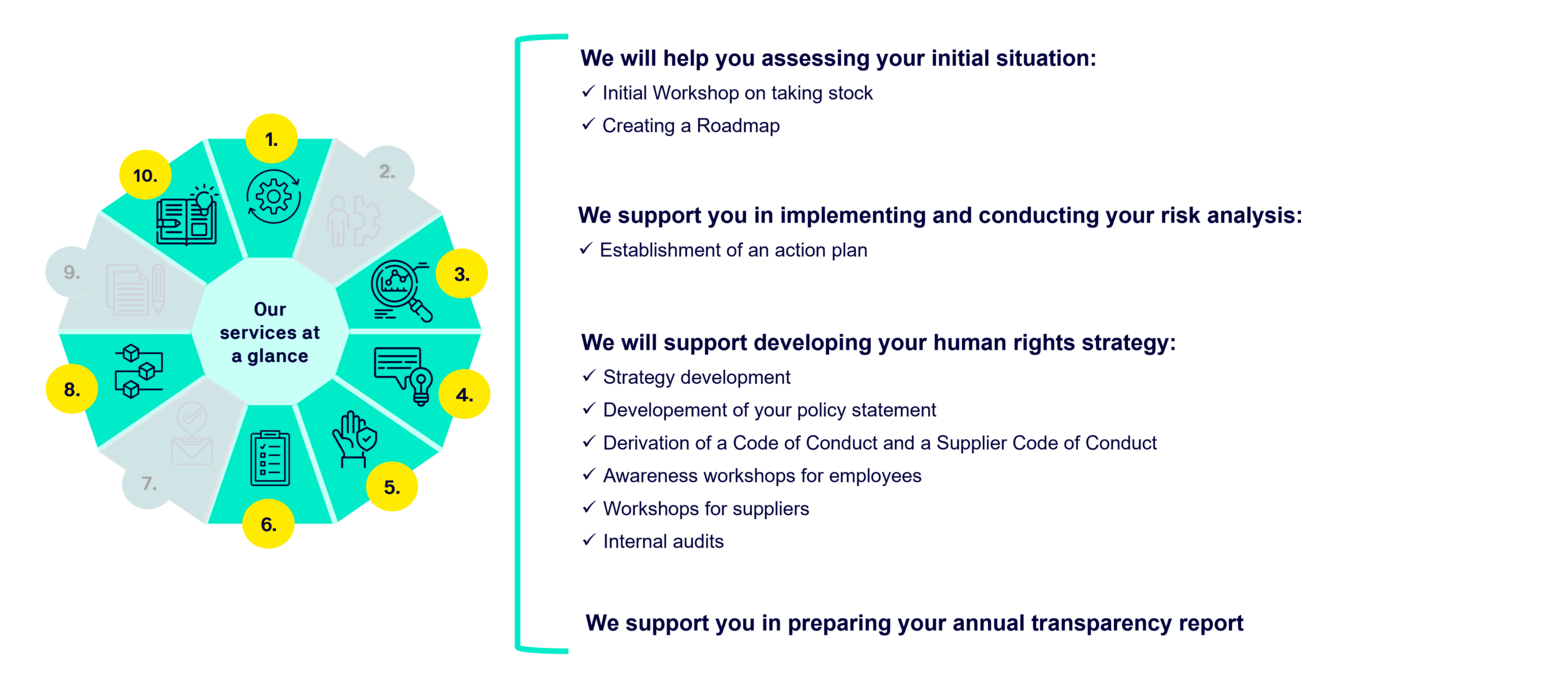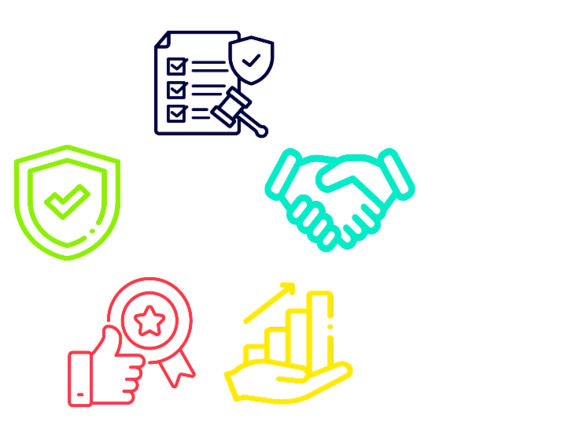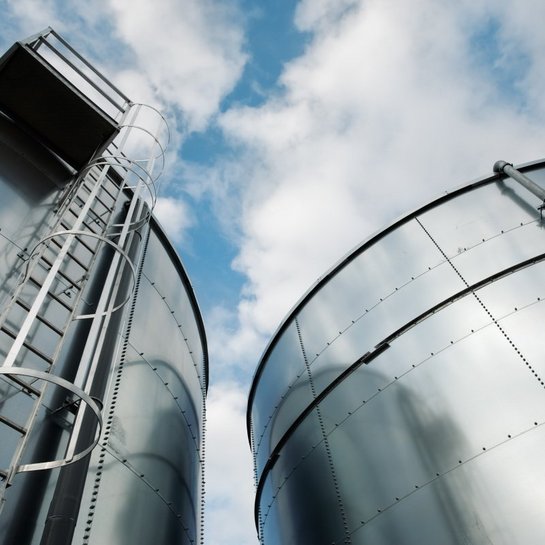Regulatory Alignment
Early adaptation to new legal requirements enables organisations to ensure compliance and avoid legal risks. A proactive approach also helps minimise financial and operational burdens.
Stronger Supplier and Customer Relationships
Implementing sustainable standards builds trust with suppliers and business customers. Close collaboration enables the achievement of shared goals and the establishment of stable, long-term business relationships.
Protecting Your Reputation
Responsible and transparent sustainability management helps build public trust and protect the organisation’s reputation. This enhances the corporate image and supports crisis prevention.
Enhanced Employee Satisfaction
Sustainable practices demonstrate that the organisation takes responsibility and shares common values. This increases employee engagement and strengthens motivation and loyalty over the long term.
Competitive Advantage
Organisations that actively advance sustainability strengthen their market position. Being perceived as a responsible company can attract new customers and business partners, enhancing overall competitiveness.







